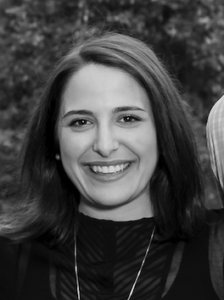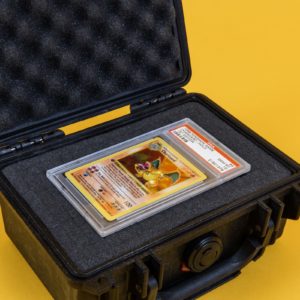We sat down with Alts Head of Listings and Acquisitions, Leah Smith to shed some light on the types of assets we’re looking for, how we acquire them, and how collectors can work directly us.
CL: Hi Leah! Maybe to start, you can just give a quick intro on your background to get us started.

LS: Sure. To date, most of what I’ve worked on – both academically and professionally – has been centered around valuable or rare items, marketplaces, or marketplaces for valuable or rare items. I studied art history in college, was an early employee at Groupon, and probably most relevant now, did several stints over nine years at 1stDibs, where I worked on everything from overall supply strategy to their jewelry business to being part of the private client team.
CL: I know recently you’ve been working a lot more with private collectors vs. purchasing through galleries or auctions. Can you talk a little bit about why that’s been your focus?
LS: I’m of the mind that the people who best understand these hobbies and categories are the collectors who’ve been in the space directly building their personal catalogues.
Further, many people outside of the space don’t necessarily realize that those huge sales results that catch all the headlines often bring with them enormous fees. So that $1M sale that you hear about for a sports card or comic often has fees of up to 30% between buyers and sellers and ends up netting the collector closer to $700k. By removing those fees from the transaction we’re often able to net collectors more value than the traditional auction models, while still getting really great pricing for our community of investors.
A third reason why working directly with collectors makes so much sense is that it really allows for a relationship where incentives are aligned. Many collectors have spent years building their collection and don’t want to fully part with their items. When they work with us they don’t have to in the sense that they can retain partial ownership and maintain financial upside in an item they really believe in. We definitely still acquire some items via galleries and auctions, but it will be the minority rather than majority of items you see on the platform.
CL: What type of items are you looking to work with collectors on?
LS: In general, we takes a pretty broad approach to cultural assets because this gives our members the widest range of investment options and breadth allows us to be reflective of culture at-large. Also, it allows them to diversify their portfolio across a variety of categories.
Currently, we love to hear from collectors across all of our categories, though if I had to prioritize I’d probably put comics, vintage tech, and NFTs at the top of our current list. We’re also strongly exploring new categories like rare books, comic art, and pop culture memorabilia.
CL: Let’s say a collector is interested in working with us. What’s the process?
LS: They’d start by simply getting in touch with us.
From there, we’d work with the collector to mutually agree on pricing for the item as well as what percentage of the asset they’d like to retain.
Once we sign an agreement, the asset is shipped to our secure storage facility and we take everything from there. We’ll file the necessary paperwork to securitize the asset with the SEC, we’ll photograph and market the item, and then we’ll drop it on our platform. After the asset fills, the collector receives payment, we administratively close the asset and we get the asset ready for trading.

CL: Why should collectors seriously consider Public as a viable alternative to other methods of selling their collection? Or maybe a better way to ask this: what are the types of collectors for whom Public makes the most sense?
LS: I see two big advantages to working with Public: the ability to maintain equity and the fee structure. We have no seller fees and our sourcing fee to investors is significantly less than the 10% sell-side fee typical at traditional auctions – not to mention the 20% buyer’s premiums you see.
If as a collector you’re not worried about fees and you just want to cash out as quickly as you can, then Public may not be the best place for you. If however, you like the idea of being able to maintain some upside, while still accessing near-term liquidity, then Public is something you should definitely consider.
CL: Okay, last one. What’s your dream item to offer?
LS: They’d be hard to find and even more difficult to price, but the coolest item I can imagine right now would be the original paper cutouts that they used to make South Park. Just think about the impact South Park has had – and it all started with construction paper!

